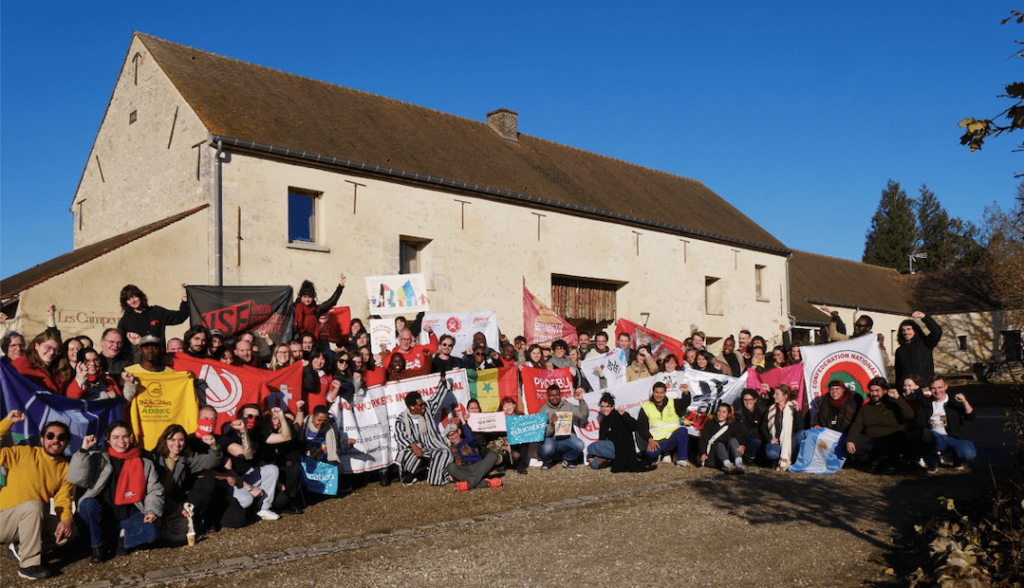
The ninth GLI International School took place from 27th – 29th November 2023 near Paris, France, and brought together over 100 trade unionists, researchers and activists from 30 countries.
Over three days, conferences, seminars and discussions were held, with the project culminating in the writing of a school manifesto.
To read more about the project, click here.

ReAct supports trade unions and affected communities across the francophone world, aiming to build a social power that can match the corporations and defend the rights of the many. ReAct, as GLI Paris, aims to create a place of debate and education on international syndicalism in the francophone world, unique thanks to its openness to researchers and NGOs, and democratically led by the contributing trade unions.
GLI Paris (Projet ReAct) is a member of the GLI Network, an alliance of organisations promoting international solidarity among trade union organizations and other organizations and movements of civil society. These share the objective of achieving a democratic and sustainableworld society, based on the principles of social justice, freedom and the rule of law.
